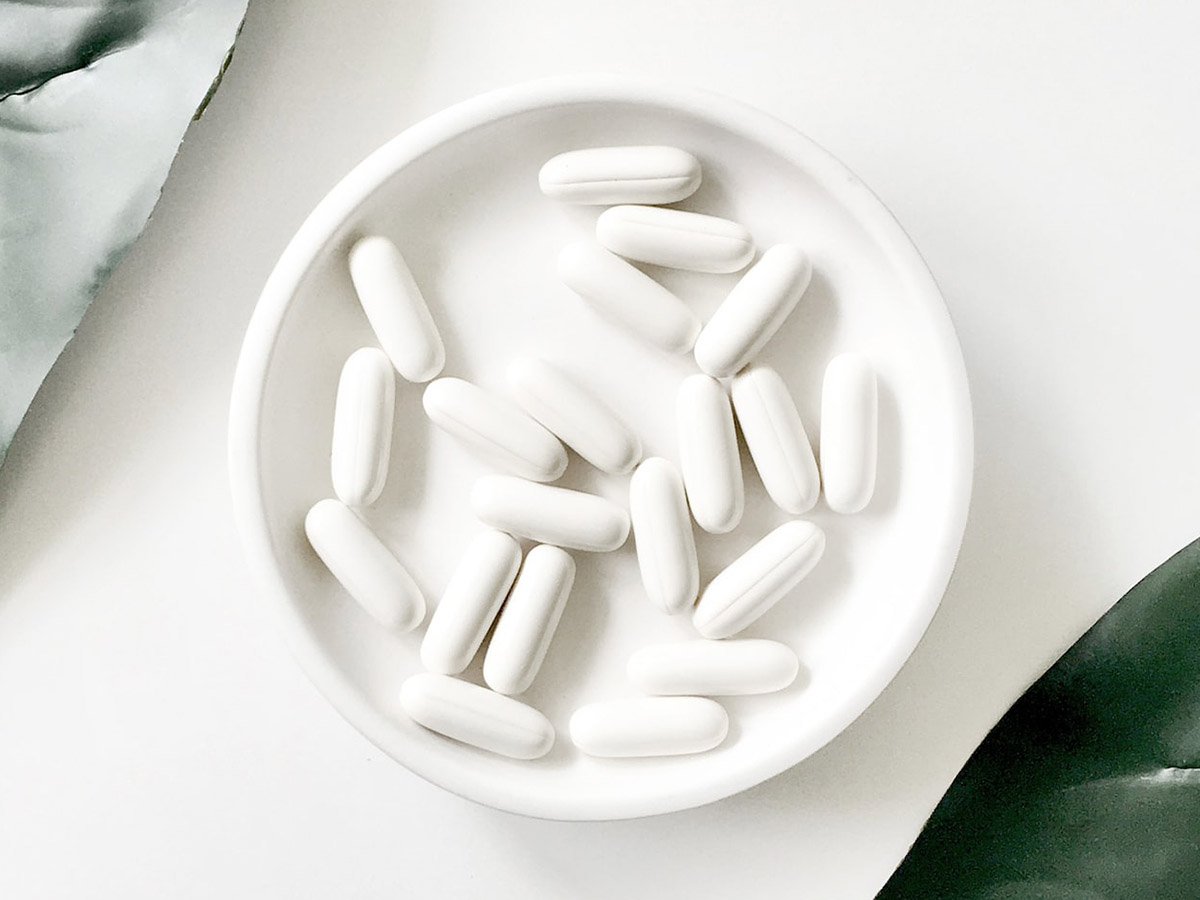Nootropics are a type of supplement that is designed to improve cognitive function. They are often used by people who want to improve their memory, focus, or concentration. But do nootropics make you nauseous? While nootropics can be very effective, they can also cause side effects like nausea. In this blog post, we’re going to talk about the effects of nootropics on nausea. We’ll also give you some tips on how to use nootropics for nausea relief.
The Effects Of Nootropics On Nausea
Nootropics are substances that are known to have cognitive-enhancing properties. There is evidence to suggest that they can help with nausea. Some people may experience side effects from taking nootropics, such as headaches or stomachaches. If you are considering taking nootropics, it is important to speak with a healthcare professional first.
Some people find that taking nootropics before or after eating helps to reduce their nausea. Others find that taking them on an empty stomach is the best way to avoid any side effects. It is also important to be aware of the dosing recommendations for each nootropic. Some are better taken on an occasional basis, while others should be taken more regularly. Be sure to talk with your healthcare professional about what is right for you.
Nootropics And Their Side Effects
Many people are interested in nootropics, which are drugs that purportedly improve cognitive performance. However, many people are also concerned about the side effects of nootropics.
Nootropics can have a number of benefits, but they also come with risks. Most nootropic drugs cause nausea and vomiting. This is because they work by altering the levels of neurotransmitters in the brain. These drugs can also cause changes in blood pressure and heart rate. In some cases, these side effects can be fatal.
Despite these risks, there are a few benefits to taking nootropics. For example, they can help to improve focus and concentration. Additionally, they may have positive impacts on mood and anxiety levels. However, it is important to note that these benefits are not always consistent or long-term. So it is important to discuss any potential benefits and risks with a doctor before starting treatment.
How Nootropics Can Help With Nausea
Nootropics can be a helpful tool for easing nausea. They work by regulating the body’s systems and improving blood circulation, which can reduce inflammation and improve cognitive function. Additionally, nootropics can help to boost the immune system and improve cognitive function. This is because they work by increasing levels of neurotransmitters in the brain, including dopamine and serotonin.
The Best Nootropics For Nausea Relief
Nootropics are known for their cognitive benefits, but some can also help with nausea relief. There are a few different types of nootropics that can be effective for this purpose, including ginger, turmeric, and peppermint. Ginger is a common remedy for nausea and can be taken in capsules, as a tea, or chewed on fresh. Turmeric is another spice that has anti-nausea properties and can be found in capsules or powder form. Peppermint oil is another option for those looking for natural nausea relief and can be inhaled or ingested in small amounts.
Though supplements can be helpful for many reasons, they are not always the best solution for nausea. In some cases, foods or drinks that are traditional remedies may work better. For example, ginger is a common remedy for nausea and can be taken in capsules, as a tea, or chewed on fresh. Turmeric is another spice that has anti-nausea properties and can be found in capsules or powder form. Peppermint oil is another option for those looking for natural nausea relief and can be inhaled or ingested in small amounts.
Some people find that foods help them feel better than supplements when it comes to relieving their nausea symptoms. One example of a food that has been traditionally used to help with this problem is ginger ale. Ginger ale contains ginger which helps to relieve feelings of nausea and gives people something to drink while they are trying not to vomit. Additionally, some people find that drinking fluids throughout the day help improve their overall nausea experience by preventing dehydration from occurring.
Nootropic Stacks For Nausea Relief

Nootropic stacks for nausea relief can be helpful in relieving symptoms of nausea. Vitamin B6, ginger, peppermint oil, chamomile tea, and acupuncture and pressure points are all good options for treating this condition. Each of these remedies has different benefits that can help to improve your experience with nausea.
Vitamin B6 is a good option for people who experience occasional bouts of nausea. This vitamin helps to support the nervous system and can help to reduce the severity of symptoms. Additionally, vitamin B6 supports healthy blood sugar levels and can help to prevent mood swings associated with nausea.
Ginger is a good choice for people who experience frequent bouts of nausea. This herb has anti-inflammatory properties which can help to reduce symptoms related to inflammation (such as headache or fever). Additionally, ginger supports digestive health and may help relieve gas and bloating caused by sickness.
Peppermint oil is an effective remedy for treating both short-term and long-term episodes of nausea. This oil has antispasmodic properties which can help relieve stomach cramps and discomfort related to vomiting or diarrhea. Additionally, peppermint oil is also known as a natural appetite suppressant which may be beneficial if you find yourself feeling ravenous due to your illness.
Chamomile tea may provide some relief from mild cases of nausea thanks to its anti-inflammatory properties as well as its calming effects on the stomach muscles. Finally, acupuncturists often use pressure points along the meridians in the body to not only treat physical ailments but also emotional issues such as stress or anxiety. By using these various nootropic supplements together, you may find that they work better than any one remedy alone in alleviating your symptoms.
How To Use Nootropics For Nausea Relief
Nootropics are supplements that have been shown to improve cognitive function and alleviate nausea. They can be a great tool for people who suffer from these symptoms. The best way to take nootropics for nausea relief is to start with a lower dose and increase gradually as needed. Be sure to speak with your doctor before taking any nootropics, especially if you are pregnant or breastfeeding.
There are a few different types of nootropics that can be used for nausea relief. One option is supplements like L-theanine, which has been shown to improve cognitive function and reduce anxiety. Another option is caffeine, which can help to stimulate the nervous system and relieve symptoms associated with nausea. Be sure to speak with your doctor before taking any nootropics, especially if you are pregnant or breastfeeding.
When To Use Nootropics For Nausea Relief
If you are feeling nauseous, the first thing you should do is try taking a smaller dose of your nootropic. This will help to minimize any nausea that may occur. Additionally, ginger or lemon balm can be helpful in relieving nausea.
Be sure to drink plenty of fluids when taking these supplements, as dehydration can also lead to nausea symptoms. Finally, stay alert and aware of your surroundings when using any type of nootropic, as overuse or misuse of these supplements can also lead to adverse effects.
What To Expect When Taking Nootropics For Nausea
When it comes to taking nootropics for nausea, there are a few things that you should be aware of. First and foremost, the benefits of taking these supplements will vary depending on the person. Additionally, how you take them will also depend on the specific nootropic that you are using. Finally, what to expect when taking them will also vary depending on the individual. However, in general, here is what to expect.
When taking nootropics for nausea, the most important thing is to be patient. The benefits of these supplements can take some time to manifest themselves, so patience is key. Additionally, it is important not to overdo it; Taking too many nootropics at once can lead to negative side effects such as dizziness or headaches. Finally, always speak with your doctor before starting any new supplement regimen if you have any concerns about health or medication issues.
While the benefits of taking nootropic supplements for nausea vary from person to person, there are a few general things that most people will experience when taking them. Firstly, most people will report an improvement in their symptoms within a few days of beginning treatment.
Secondly, the dosage that you need to take will also depend on the specific nootropic that you are using. Thirdly, the duration of treatment will also vary depending on the individual; Some people may only need short-term relief while others may require longer-term intervention. However, in general, most people find that they experience significant improvements within a week or two of starting treatment and continue to see positive results over time.
Are Legal Nootropics Less Likely to Cause Nausea?
Are legal nootropics less likely to cause nausea? Nootropic legality overview varies across different countries. However, legal nootropics generally adhere to strict regulations, ensuring safety and minimizing side effects such as nausea. It’s essential to check the specific legal status of nootropics in your region to guarantee they are approved and regulated properly.
Conclusion: Do nootropics make you nauseous?
Nootropics are a type of supplement that is designed to improve cognitive function. They are often used by people who want to improve their memory, focus, or concentration. While nootropics can be very effective, they can also cause side effects like nausea. In this blog post, we’ve talked about the effects of nootropics on nausea. We’ve also given you some tips on how to use nootropics for nausea relief.
There are a few different types of nootropics that can be effective for this purpose, including ginger, turmeric, and peppermint. Ginger is a common remedy for nausea and can be taken in capsules, as a tea, or chewed on fresh. Turmeric is another spice that has anti-nausea properties and can be found in capsules or powder form. Peppermint oil is another option for those looking for natural nausea relief and can be inhaled or ingested in small amounts.
If you are feeling nauseous, the first thing you should do is try taking a smaller dose of your nootropic. This will help to minimize any nausea that may occur. Additionally, ginger or lemon balm can be helpful in relieving nausea. Be sure to drink plenty of fluids when taking these supplements, as dehydration can also lead to nausea symptoms.
Stay alert and aware of your surroundings when using any type of supplement, especially one designed to treat such a sensitive issue as nausea. And finally, if you have any concerns at all please make sure to discuss them with your doctor beforehand.

